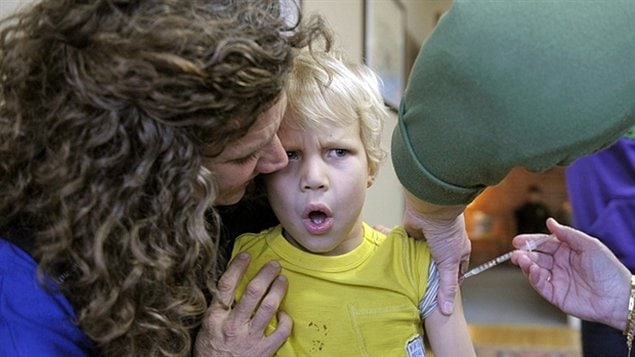Why people avoid flu vaccines
“From what we know mostly it’s about thinking that it’s not going to happen to you,” says Dr. Allison McGeer, an infectious disease specialist based at Mount Sinai Hospital in Toronto. “We tend to have a fixed belief in our invulnerability and it’s hard to get us to…invest the time that’s required to do something preventive.”
The human brain is also hard-wired to avoid risk, says McGeer and people tend to focus on the very small risk of a reaction to the vaccine instead of the much larger risks associated with getting influenza.

Vaccine does not cause flu or autism
Some people believe they get the flu from the vaccine itself, which is “absolutely not true,” says McGeer. Flu shots are given at the same time as flu season and while a person is vaccinated for one or two strains of flu, they may leave the clinic and be exposed to something different and come down with that strain of flu. They may associate the shot and the illness even though there was no connection at all.
Other misconceptions abound. McGeer categorically says there is no credible, scientific evidence to link vaccines to autism.
“All sorts of myths and misconceptions” on the net
She adds that people tend to surf the internet and find stories that validate their suspicions instead of just looking for the truth. “It is really easy to find all sorts of myths and misconceptions, and people looking like they’re reliable and saying the silliest things.”
Instead McGeer encourages people to use important government websites like the Centres for Disease Control in the United States or the Public Health Agency of Canada whose only vested interest, she says, is in keeping the public healthy.
Social media would be ideal tools to get more Canadians to get the flu vaccine, but public health agencies are often underfunded and don’t have enough staff to mount internet campaigns.

Predicting the flu season
How bad will the flu be this year? “You never know exactly what to expect,” says McGeer. “About once in every ten years we get really lucky and there’s not much flu activity. And two or three times in ten years we have a really active, nasty season where many people are hospitalized and die. And so going into it you’re never quite sure.
“We do know for sure though that the more people get vaccinated, the less bad it’s going to be.”







For reasons beyond our control, and for an undetermined period of time, our comment section is now closed. However, our social networks remain open to your contributions.